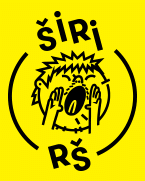Untitled
Expert Reviewed
How to Come up With a Good Title
Two Methods:Writing a Title for Non-FictionWriting a Title for FictionCommunity Q&A
Writing an essay or a story can seem like the hardest part of the project, but sometimes coming up with a catchy title can be just as challenging. However, with a combination of organization and creativity, you can create a wide selection of potential titles that will allow you to choose the perfect one for your work.
Method1
Writing a Title for Non-Fiction
[Image titled Come up With a Good Title Step 1]
1
Write a draft of your essay. A title is the first thing your reader will see, but it is often the last thing a writer creates. You may not know what your essay will really be saying until after you've written part of it.
Essays often change during the drafting and revising process. A title you come up with at the beginning may not reflect your essay when you have finished it. Make sure to also revise your title after you finish your paper.
[Image titled Come up With a Good Title Step 2]
2
Identify major themes in your work. Typically, works of non-fiction have an argument. Create a list of two or three main points you're trying to make.
Look at your thesis statement. This sentence contains the major argument of your paper and can help you craft a title.
Look at your topic sentences. Reading these sentences together can help you pick out themes, symbols, or motifs in your paper that can be integrated into the title.
Consider asking a friend to read your work to help you identify themes.
[Image titled Come up With a Good Title Step 3]
3
Determine your target audience. Write down a few groups of people who would be interested in your topic, and why they would be drawn to it.
If you are writing a school assignment, or your audience are academics and specialists in your topic, use formal language. Avoid using a playful tone or slang terms.
If you are trying to reach an online audience, think of what keywords a reader might use to find your article. For example, if you wrote a how-to article, include words like "beginner" or "do it yourself" that would identify your writing as appropriate for all levels of ability.
If your piece is a news story, consider who you are writing about. For example, if are writing about an athletic team write down terms like "fan," "coach," "referee," or the team name. Readers with an interest in sports or that team can quickly identify your perspective and the topic of your story.
Home / Blogging Tips / 6+ Incredible Catchy Title Generator Tools
6+ Incredible Catchy Title Generator Tools
By Denisa April 15, 2015 Blogging Tips 5 Comments
A while ago I talked about choosing a blog topic for your website, now I will show you how to come up with great headlines for your articles using a catchy title generator.
Picture this:
Your blog is up and running and you are almost finished writing a cool post packed full with useful information and just before hitting the publish button you start thinking “is this the best title for my article?”
This happens to me a lot and I’m sure there are a lot of bloggers who struggle when it comes to writing catchy blog titles.
Brainstorming headlines works but unfortunately it takes too much time for me, that’s why I prefer using a catchy title generator.
Why?
Because it will generate hundreds of clickable headlines in seconds.
Sure you can make use of some headline writing tips but still the process can be a little time consuming.
So what’s a quicker faster way to come up with irresistible headlines for our posts?
Top Ten Tips For Titling Your Movie
By Chris Jones on July 9, 2011 in Tips, Titles3 Comments
Is the title of your film killing its chances?
Consider, the title for your film or script is the VERY FIRST thing most people will experience about it. The first question asked is usually ‘what’s it called?’
And like all first impressions, you want it to be a good one.
As humans, we make immediate and long lasting judgements in that very first moment of experience. Much like seeing someone across a room who catches your eye, a title should attract both powerfully and authentically, promising something exciting, stimulating, thought provoking and mysterious… If it can do this, the grounds for a solid relationship are laid (be that an actor turning the first page of the script, an audience member buying a cinema ticket or a financier choosing to read the whole synopsis instead of moving onto the next project).
Over the last week I have been teaching at a European initiative workshop called Four Corners. Film makers from countries including Greece, Bulgaria, UK, Germany, Estonia and more, all gathered in central London for an intensive week long development workshop.
All the students had reasonably well developed projects, some commercial, some art-house, some drama, and some just ‘out there’. One consistent issue that kept coming up for me was the titles they had chosen. To be fair, these filmmakers were not working in their first language (they were working in English) and it was clear a huge amount was being ‘lost in translation’. Titles often felt a little ‘on the nose’ or simply too esoteric. But after working hard all week, most of the films gained new titles and their pitches began to sizzle.
This simple title change made a huge difference to their pitches as the title is the jumping off point…
So here are my top ten tips for titling your film.
1. The shorter the better.
2. The title should hint at the genre of the film. Do this well and the second question people usually ask (what’s the genre?) is answered implicitly.
3. The title is a sales tool designed to get people to read the script, rent the film or ask for more information. It is NOT an artistic statement (think more craft than art).
8. Don’t be clever. Titles are not something to be figured out. As film makers, we might like the idea of a title being a mystery or ephemeral, but audiences will just move right on by if they don’t ‘get it’ immediately.
9. The title should infer the central conflict of the film… ‘Jaws’ (the shark is going to eat people), ‘The Exorcist’ (there’s going to be an exorcism), or more recently my pal Mike Mindel, who renamed serial killer horror movie ‘The Hollow’ to ‘Don’t Let Him In’.
10. Above all, ‘do what it says on the tin’. The title should honestly and succinctly reflect the story
First let’s see why headlines or catchy titles are so important.
Are Headlines that Important?
Think of it this way…
There are tons of articles published daily on the web.
Everybody tries to get ahead somehow, by optimizing the articles for search engines, ranking higher and so on.
The fact is that headlines play a very big role in your blog’s success.
It’s not enough to write the best content you can write you also have to come up with a cool title so that people will click on your site in search results and not on your competitor.
Great headlines can…
Grab your visitors attention
Increase CTR (click through rate)
Increase traffic to your website
Increase social shares
6+ Catchy Title Generator Tools
Here are some of the best catchy title generator tools so you can come up with endless awesome clickable blog titles in seconds.
[catchy title generator tools]
1.) TweakYourBiz Title Generator
TweakYourBiz Title Generator is my favorite tool at the moment when it comes to blog title suggestions for my posts, simply because it doesn’t generate just one or 5 headlines it generates hundreds of them, how cool is that?
All you have to do is go through them and choose one that perfectly fits your content. Sure most won’t match your blog topic but usually you will find at least one that is just amazing.
2.) Portent’s Content Idea Generator
This is another simple to use catchy title generator. All you have to do is insert the subject or keyword and a clickable title will be automatically generated for you.
The downside is that you have to go through a few on them until you find one that fits your content. But still a very handy tool to have.
Dissertation titles
The dissertation title is your first opportunity to let the reader know what your dissertation is about. With just a few words, the title has to highlight the purpose of the study, which can often include its context, outcomes, and important aspects of the research strategy adopted. But a poorly constructed title can also mislead the reader into thinking the study is about something it is not, confusing them from the very start.
In our articles on EXPECTATIONS and LEARNING, we explain what the reader expects and learns from your dissertation title, before setting out the major COMPONENTS that can be included in dissertation titles. Finally, since your dissertation title should follow a specific written style, which explains when to capitalise words, which words to capitalise, how to deal with quotation marks, abbreviations, numbers, and so forth, we provide some guidance in our article on STYLES.
3.) HubSpot’s Blog Topic Generator
It’s quite easy to use HubSpot’s blog topic generator.
Just enter your keyword in the field and hit the button. Each time you will do this 5 titles will be generate for you.
4.) ContentIdeator
Again all you have to do is enter a keyword and hit the “Get Ideas” button.
Wait a moment and a list of awesome headlines will be generated.
That’s it.
Just choose whatever you like the most.
5.) Inboundnow: Blog Title Idea Generator
This one is a little different from above because you don’t have to enter any keywords.
The tool works by randomly generating cool headlines with a [blank] space for your keyword.
It’s more like a catchy template generator.
[Image titled Come up With a Good Title Step 4]
4
Think about the function of a title. Titles predict the content in the essay, reflect the tone or slant, include keywords, and catch interest. Your title should never mislead the reader. A title can also reflect the purpose of the article, such as historical context, theoretical approach, or argument.[1]
[Image titled Come up With a Good Title Step 5]
5
Decide between a declarative, descriptive, or interrogative title. When you are choosing one of these titles, think about the kind of information you want to convey to your reader.
Declarative titles state the main findings or conclusions.
Descriptive titles describe the subject of the article but do not reveal the main conclusions.
Interrogative titles introduce the subject in the form of a question.[2]
[Image titled Come up With a Good Title Step 6]
6
Avoid titles that are too long. For nonfiction, titles should convey the important information, keywords, and even methodologies. But a title that is too long can be cumbersome and get in the way. Try to keep it around 10 words or less.
[Image titled Come up With a Good Title Step 7]
7
Seek ideas from your own writing. Reread your work to find sentences or phrases in which you refer to your main ideas. Often the introductory or concluding paragraphs of your work will have a phrase that would work well as a title. Highlight or make a note of any words or phrases that explain your ideas.
Look for attention-grabbing descriptions or phrases you're proud of. For example, in an essay on censorship choose a phrase like "forbidden music" that is descriptive but also intriguing.
[Image titled Come up With a Good Title Step 8]
8
Review your sources. Search quotations from sources you've used to support your points for something that grabs a reader's attention.
For example, in an essay on religious persecution, a quote like "God was silent" is arresting and thought-provoking. Readers may immediately agree or disagree and will want to read your explanation.
If you use someone else's words, make sure to put them in quotation marks, even in the title.
[Image titled Come up With a Good Title Step 9]
9
Create a list of possible titles. Using your lists of themes, possible audiences, phrases, and quotes created in the previous steps, brainstorm possible title words and phrases. Try combining two different elements, such as a quote and a theme. Often writers separate two elements with a colon. The parenthetical notes in the following examples indicate which elements the author chose.
The Negative Impact of Replacement Referees on Football Fans (Theme and Audience)
"A Crucible of Victory": Understanding the Western Front in World War One (Quote and Theme)
The Queen of Diamonds: Marie-Antoinette and Revolutionary Propaganda (Phrase and Theme)
4. More often than not, your title will be accompanied by a short pitch or key artwork. This should all work in harmony and feel like a component part of a whole and well rounded concept.
5. You will NEVER be 100% happy with the title. It always feels like a bit of a compromise. And why shouldn’t it? You are reducing 100 pages of story to a single word of phrase.
6. Once you decide on a title, if a better one comes along, use it. You are NEVER wedded to the title until the film is complete (of course this raises social media and online marketing problems). Ideally get it right up front, but DON’T hold on to a poor title if a new and better one comes along.
7. Check the titles ‘Goolgeability’ with the Google keyword tool. How many people actively search for that word of phrase each month? These metrics are important.
[Image titled Come up With a Good Title Step 10]
10
Respect conventions. Different disciplines, such as the sciences, the humanities, or the arts, may have different rules about what a title should look like. If you are aware of a specific expectation, you should conform to those guidelines. There are some general rules to remember:
Most words in your title should begin with a capital letter.
The first word and the first word after a colon should always be capitalized even if one of the "short words."
In general, do not capitalize the following words: and, a, an, the, or short prepositions if they are not the first letter in the title.[3]
If the title of a book or film is part of your essay title, it should be put in italics, e.g., Gender Relationships Between Vampires in Twilight. Short story titles are always in quotation marks.
Know if the paper follows MLA, APA, or another style. Websites like Purdue University's Online Writing Lab, APA Style, and MLA Handbook can help you with conventions for titles.
Method2
Writing a Title for Fiction



























Prikaži Komentarje
Komentiraj